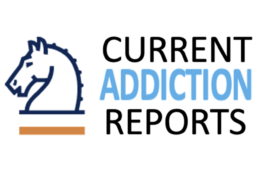Mary Sharpe, the Chief Executive Officer of The Reward Foundation, was a co-author of a ‘think piece’ on Preventing Adolescent Harmful Sexual Behaviour for NOTA, the National Organisation for the Treatment of Abusers. NOTA is a charity that provides support for professionals dealing with sexual offenders. In this analysis of recent research, Mary joined a UK-wide a team led by Stuart Allardyce, the National Manager of Stop It Now Scotland. Other collaborators were Dr Nicola Wylie, Forensic Psychologist with the Rossie Young People’s Trust, Dr Berit Ritchie, Consultant Clinical Psychologist from South West Yorkshire Partnership NHS Foundation Trust and Dr Ian Barron, Reader in Trauma Studies at Dundee University
Harmful or problematic sexual behaviour is relatively common. Around a third of child sexual abuse is perpetrated by children and young people under the age of 18. Indeed early adolescence and the onset of puberty represent a peak time for sexual offending behaviour. A Freedom of Information request in 2013 -14 revealed that 4,200 children and young people in England and Wales were reported as having committed a sexual offence. The majority of adolescents desist from such behaviour as a result of the natural process of growing up when they move into early adulthood, but the minority who persist (between 5% and 20% in most recidivism studies to date) include higher risk adult sexual offenders.
Why is adolescence statistically associated with the onset of harmful sexual behaviour (HSB) for a minority of young people? Puberty and early adolescence is a time of significant physical and emotional change and development for most children, as well as a key stage in sexual development. Sexual identity and lifestyles are still not fully formed and the intimacy skills required for healthy physical and emotional intimacy are still developing, as are skills in perspective-taking and reading social situations. Sexual knowledge is often partial and gathered from many different sources – TV, books, siblings, the internet, peers etc. Crushes, falling in love and the start of dating can be a considerable preoccupation. It can be a period when sexual drives are at their most urgent but often least controlled and sexual experimentation can go wrong for even the most well-adjusted individuals.
The full document is available from the University of Dundee.




